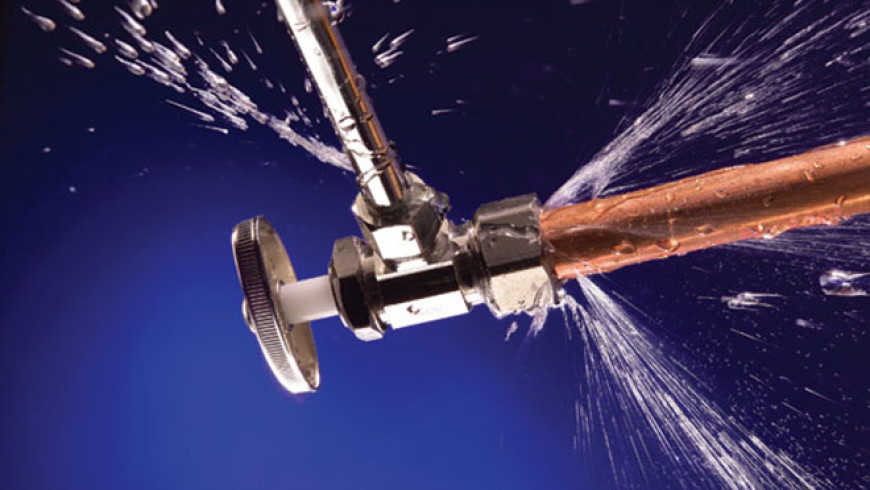How to Prevent the Six Most Common Water Leaks in Your Home
How to Prevent the Six Most Common Water Leaks in Your Home
Blog Article
Have you been hunting for insight about Most Common Causes of Leaky Pipes?

Leaks not just create waste of water yet can additionally create unneeded damages to your residence and also advertise undesirable organic growth. Sadly, water leaks may go undetected considering that most of the pipework in our residence is concealed. By recognizing and looking for day-to-day scenarios that create leaks, you can protect your residence from future leaks as well as unnecessary damage. Today, we will certainly take a look at 6 leakage triggers that might be triggering your pipelines to leak.
Trespassing roots
Many water leaks begin outside the house instead of inside it. If you notice a sudden decrease in water pressure, state in your tap, take time to head out as well as examine your yard. You may see wet spots or sinkholes in your backyard, which may suggest that tree origins are attacking water lines triggering water to permeate out. You can have your plumber check for intrusion, particularly if you have trees or shrubs near your residential property.
Rusty water supply
As time goes by, your plumbing system ages and rust such as corrosion might start eating away the pipelines. This could be the source of discoloration or warping on your water pipes. This requires an examination with your plumber right away. Consider replacing the pipes considering that they are at a greater threat of corrosion than the newer designs if our plumbing system is old.
Faulty Pipeline Joints
Pipeline joints can wear away over time, resulting in water leakages. If you have noisy pipes that make ticking or banging noises, especially when the hot water is turned on, your pipe joints are probably under a lot of stress.
Instantaneous temperature adjustments.
Severe temperature adjustments in our pipelines can cause them to increase as well as contract unexpectedly. This growth and tightening might cause splits in the pipes, specifically if the temperature are listed below freezing.
Poor Water Connectors
Sometimes, a leak can be brought on by loose tubes as well as pipelines that supply your appliances. Usually, shifting is what causes the loose water Links. You may find when it comes to a washing machine, a pipe might spring a leak as a result of shaking during the spin cycle. In case of a water links leak, you may see water running straight from the supply line or pools around your appliances.
Obstructed Drains
Clogged drains could be irritating as well as inconveniencing, yet they can often end up causing an overflow leading to rupture pipelines. Maintain getting rid of any products that might go down your drains that might obstruct them to prevent such aggravations.
All the above are reasons for leaks yet not all water leakages result from plumbing leaks; some leakages could come from roofing system leakages. All leaks ought to be repaired instantly to prevent water damages.
Leakages not just create waste of water but can also trigger unneeded damage to your residence as well as promote undesirable organic development. By understanding and looking for daily circumstances that create leaks, you can protect your home from future leaks and unnecessary damage. Today, we will look at six leakage triggers that may be causing your pipes to drip.
At times, a leakage can be created by loosened hoses and pipelines that provide your devices. In situation of a water connections leak, you may discover water running directly from the supply line or puddles around your devices.
How To Check For Water Leak In Your Home
How To Check for Leaks
The average household's leaks can account for nearly 10,000 gallons of water wasted every year and ten percent of homes have leaks that waste 90 gallons or more per day. Common types of leaks found in the home are worn toilet flappers, dripping faucets, and other leaking valves. These types of leaks are often easy to fix, requiring only a few tools and hardware that can pay for themselves in water savings. Fixing easily corrected household water leaks can save homeowners about 10 percent on their water bills.
To check for leaks in your home, you first need to determine whether you're wasting water and then identify the source of the leak. Here are some tips for finding leaks:
Take a look at your water usage during a colder month, such as January or February. If a family of four exceeds 12,000 gallons per month, there are serious leaks.
Check your water meter before and after a two-hour period when no water is being used. If the meter changes at all, you probably have a leak.
Identify toilet leaks by placing a drop of food coloring in the toilet tank. If any color shows up in the bowl after 10 minutes, you have a leak. (Be sure to flush immediately after the experiment to avoid staining the tank.)
Examine faucet gaskets and pipe fittings for any water on the outside of the pipe to check for surface leaks.
Undetected water leaks can happen without the home or business owner even realizing. If you suspect a water leak, but not able to find the source. It is time to contact a professional water leak detection service, The Leak Doctor.
How To Find a Water Leak In Your Home
https://www.leakdoctor.com/blog/How-To-Check-For-Water-Leak-In-Your-Home_AE197.html

I'm just very involved in How to Find Water Leaks and I'm hoping you enjoyed reading the entire entry. Enjoyed reading our write up? Please share it. Help somebody else discover it. I praise you for your time. Don't forget to check up our site back soon.
Services Report this page